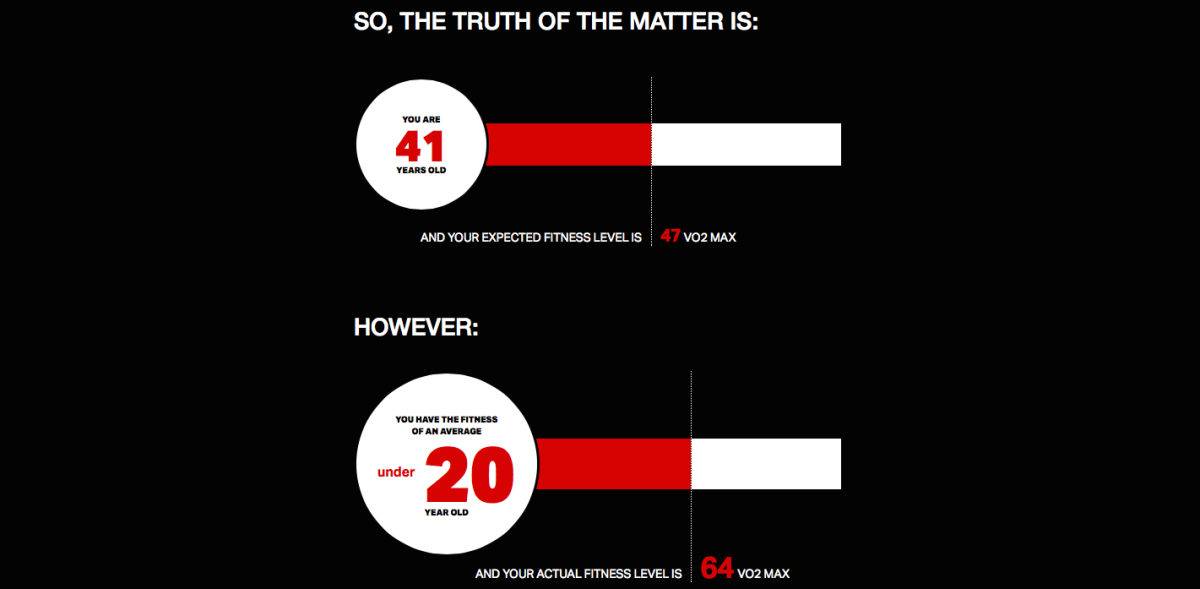Researchers at the Norwegian University of Science and Technology (NUST) in Trondheim have determined that fitness age—a measure of cardiovascular performance—is a better indicator of longevity than chronological age.
According to the New York Times, your fitness age is determined by your VO2 max, or how well your body can take in and utilize oxygen. And your fitness age can be managed: If you exercise and take care of your body—thereby increasing your VO2 max and cardiovascular endurance—it can drop. But if your VO2 max is below average for your age group, then your fitness age will be higher than your actual age. The Timessays that a 50-year-old man can have a fitness age anywhere between 30 and 75.
A few years ago, the Norwegian researchers measured aerobic capacity on a treadmill and checked waist circumference, heart rate, and exercise habits of 5,000 Norwegians between the ages of 20 and 90. They then calculated each person’s VO2 max. The data, however, didn’t indicate any connection between a longer life span and fitness age.
In the most recent study, published last June in Medicine and Science in Sports and Exercise, the scientists looked at extensive health questionnaires filled out by 55,000 Norwegian adults since the 1980s. Using this data, the researchers then calculated each respondent’s VO2 max, and then checked death records. Sure enough, people who had a calculated VO2 max 85 percent or more below the average for their age group (and therefore an older fitness age) were 82 percent more likely to die prematurely than those with an average or lower fitness age than their actual age.
The study’s authors believe that fitness age can better indicate a person’s risk for early death than being overweight or having high blood pressure or cholesterol.
The good news for those of us who aren’t Norwegian is that the researchers debuted an online calculatorearlier this month. It asks a series of questions about your body type and exercise habits. It then tells you your expected VO2 max level for your age group, your actual VO2 max, and how your fitness age stacks up against your actual age.
To decrease your fitness age, Ulrik Wisloff, professor of medicine at the K.G. Jebsen Center for Exercise in Medicine at NUST, told the Times, “Just exercise.”
